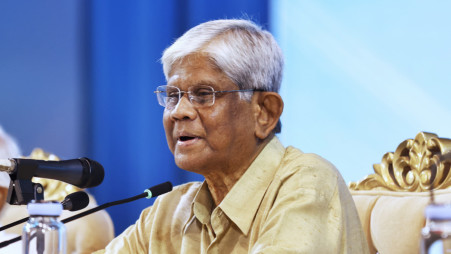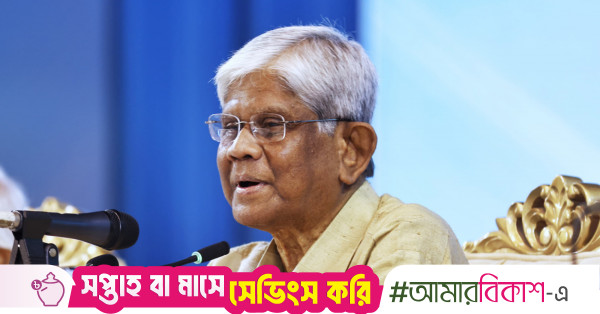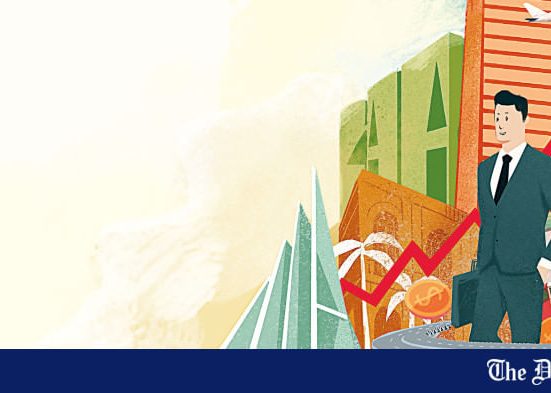“The formal agreement is still pending. Before signing, we will review where tariff reductions are possible and what we may need to import,” says Salehuddin Ahmed
A file photo of Finance Adviser Saluhuddin Ahmed speaking at a press conference at Osmani Auditorium in the capital on 3 June. Photo: Rajib Dhar/TBS
“>

A file photo of Finance Adviser Saluhuddin Ahmed speaking at a press conference at Osmani Auditorium in the capital on 3 June. Photo: Rajib Dhar/TBS
The agreement on the United States’ 20% reciprocal tariff rate on products imported from Bangladesh has not yet been finalised, leaving room for further discussions to reduce the tariff, said Finance Adviser Salehuddin Ahmed today (6 August).
He shared this update while speaking to reporters after meetings of the Advisory Council Committee on Government Procurement and the Advisory Council Committee on Economic Affairs.
On 31 July, the US decided to reduce the tariff rate on Bangladeshi products to 20% from the previously declared 35%, after a series of talks over the past month.
Replying to a question whether Bangladesh would seek further negotiations, Salehuddin said, “Yes, we will. The commerce adviser has not returned yet, but I’ve spoken to the vice president of the US Chamber of Commerce. Their attitude toward Bangladesh is positive.
“They have acknowledged that we have paid back Chevron and MetLife, and we don’t withhold payments. So, there’s goodwill among US businesses.”
The adviser reiterated that the formal agreement is still pending. “Before signing, we will review where tariff reductions are possible and what we may need to import.”
When asked whether the revised US tariff is a relief for Bangladesh, he said, “It would have been better if it had been reduced further. What they have done is reasonable, but I wouldn’t call it a relief. We would have been better off without this reciprocal tariff.”
Salehuddin further said, “Compared to other countries, Bangladesh is not in a bad position. Our readymade garment sector is strong, our textiles and knits can adapt quickly, though weaving might face some difficulty.”
Regarding the lack of transparency around the tariff discussions, he clarified, “These are one-to-one negotiations, not multilateral like the WTO or UN, where everything is public. Our competitors are Vietnam, China, North Korea, South Korea, India, and Pakistan. So, confidentiality is essential.”
Responding to a question on the broader economic situation, the finance adviser said, “The economy has come a long way from the edge of crisis. It takes vision to see that. On the surface, it may not be obvious. But the earlier challenges were severe.
“Now, we are in a more stable position. However, challenges remain concerning inflation, employment, energy, and now tariffs. Most importantly, we must restore business confidence and accelerate trade, which has slowed.”








